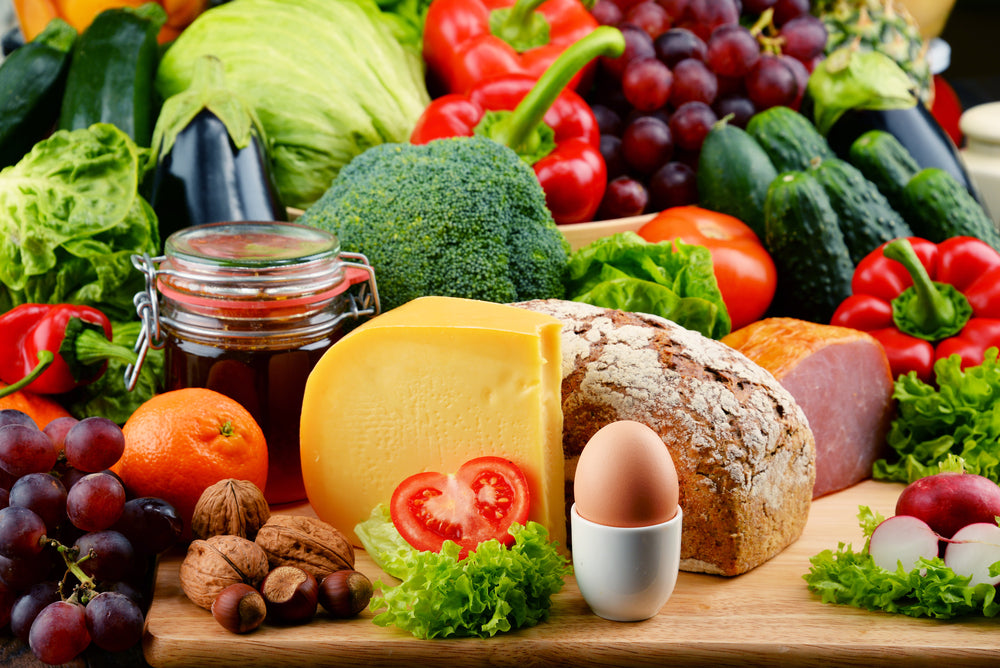Vegetarian numbers are on the rise in the UK and there are many reasons for this. They include health, a concern for animal welfare and the environment, or simply a change in taste.
A vegetarian is anyone who does not eat meat, fish or poultry or foods containing them, but the term is often used in a much wider context. For example flexitarian (flexibly vegetarian), pescatarian (happy to eat fish), lacto-vegetarian (eats dairy, but not eggs) and ovo-vegetarian (eats eggs but not dairy).
Clinical nutritionist, Suzie Sawyer shares her top tips on how to be a healthy vegetarian.
Plan your protein needs
It can sometimes be hard for vegetarians to meet protein needs, as well as requirements for certain trace minerals. Protein is essential for hormone production, the immune system and strong muscles and bones, particularly, as we age.
Plant foods don’t contain all the essential amino acids found in animal produce. But the good news is that you can combine grains and beans to get all the essential amino acids the body needs. For example, a bean-based chilli con carne with rice is a great choice and satisfies this requirement.
Animal produce, including eggs, milk and dairy, contain all the essential amino acids. Therefore, if you’re eating these regularly you should be able to meet the body’s needs. It’s important to eat protein at every meal, to ensure the body gets what it needs but also to keep blood sugar and energy levels sustained throughout the day.
There are also plenty of vegetarian protein powders, made from whey, pea or hemp, which can be added to smoothies. These are especially useful to top up protein needs if you’re very active or stressed (when the body needs more support generally).
Top tip: eat plenty of pulses, soya products, nuts and seeds, eggs and cheese.
Plan your micro nutrient needs
Vegetarians may be more susceptible to low levels of certain minerals such as the easily absorbable heme-iron found in meat. However, iron can be found in vegetarian sources such as pulses, nuts, seeds, cereals, green leafy vegetables, tofu, dried fruit, molasses and fortified foods.
Vitamin C helps boost uptake of iron, so eat a piece of fruit or some vegetables at the same time. Alternatively, go for a glass of orange juice with your breakfast or a fresh fruit salad as a dessert or starter.
Zinc is essential for the immune system and many other key body functions. Therefore, put milk and dairy products, eggs, sourdough bread, cereal products, green leafy vegetables, pulses and pumpkin seeds on the menu. Healthy snacking is another way to help increase levels - try eating seed mixes or sprinkle them over salads and fruit. Try making pulse-based dips such as hummus.
Vegetarians can run the risk of being low in vitamin B12 which is essential for energy production, although vegans are at greater risk since it’s only found in animal produce.
Calcium is essential for healthy bones and teeth and can help to protect against osteoporosis in later life. Non-dairy sources can be sourced from foods such as tofu, fortified soya and rice milk, almonds, dark green vegetables and sesame seeds.
Top tip: Include milk, dairy products and eggs if they’re still part of your daily diet.
Plan your omega-3 needs
The essential omega-3s can often get forgotten by vegetarians, particularly if you’re not eating fish. They are called ‘essential’ because omega-3s support hormones, eye health, the heart, joints and skin but the body cannot make them and so these need to be included in your diet.
The good news is the body can convert something called ‘ALA’ found in flaxseeds, rapeseed oil, soy oil, pumpkin seeds, tofu and walnuts, into the beneficial essential fats. Oily fish, such as salmon, mackerel and sardines already contain plenty of these beneficial fats, so if you’re a pescatarian you are more than likely including these types of fish regularly in the diet.
Plan your supplement needs
Even though you’ll hopefully be planning your diet well, it’s always good to cover all bases with a daily multi-vitamin and mineral supplement as well. It’s like having a really cost-effective health insurance policy! You can also take vegetarian omega-3 supplements to ensure you’re meeting your daily needs.
There are lots of health benefits to being vegetarian and with a little planning you can make sure that you have the healthiest vegetarian diet possible.

